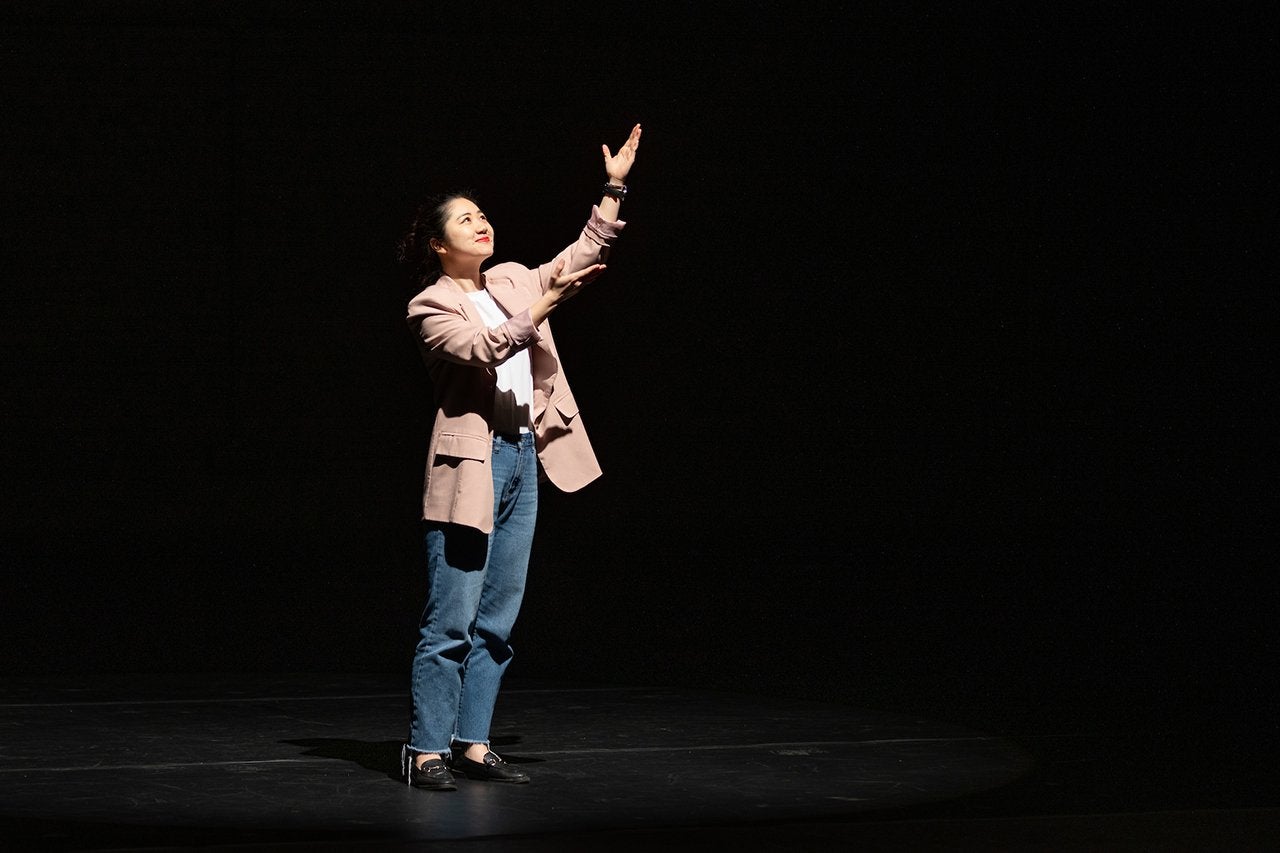Her family huddled around as Qian Zhang, a high school senior, reviewed the catalog from Zhengzhou University, a school close to home in central China. When she reached the mechanical engineering page, her mother, stepfather, grandmother and grandfather – all engineers – nodded, and her decision was clear.
“I was born under the one-child policy,” explains Zhang, who grew up in China’s Henan province, known as the cradle of Chinese civilization. “My family’s dreams and ambitions all funneled down to me.”
While the assistant professor of systems engineering has certainly made her family proud, she’s still managed to remain true to herself by folding a little artistry into her career.
Creativity has been part of her life since age 6, when she performed Latin dance. After playing competitive badminton at age 12, she later wrote and directed a script while at university.
At Zhengzhou, Zhang became interested in human factors engineering, which considers the human experience when designing. Later, at Jilin University in northeast China, she earned a master’s in mechanical engineering with a human factors focus and discovered that the psychology of how things develop held the greatest appeal.
It’s no wonder, then, that her first job – editing automotive textbooks in Beijing – wasn’t satisfying: It didn’t play to her passion for the artistic.
“I love reading, and the topic utilized my degree, but I wanted to do something more creative,” she says.
To feed her creative spirit, Zhang joined a small amateur theater troupe while working in Beijing. They held impromptu performances where patrons participated.
Her involvement led to an opportunity to employ her creative side handling public relations for the Beijing Film Academy, which was celebrating its 65th year.
As much as she enjoyed the work, she missed the mental acrobatics of engineering, so she applied and was accepted to the State University of New York at Buffalo doctoral program in human factors and ergonomics engineering. When she completed the program, she moved to Houston for her postdoctoral research, using wearable technology to study ICU nurses’ stress levels, before joining the College faculty in 2022.
“It was the perfect position for me because of the emphasis on student research,” says Zhang. “I enjoy researching to solve real problems, and our Industrial Advisory Board advises us on the curriculum so that our students graduate with needed skills. We also have a strong internship program, so our students gain real-life research experience.”
What really feeds her soul is the liberal arts component of engineering, or what Zhang describes as the “romance in the research.”
“Students have the curiosity and enthusiasm to find answers,” she explains. “It’s the same energy as acting. When the students bring a solution to industrial partners, like the type of sensor needed to automate the assembly line, sharing that solution is where the romance lies.”
Of course, she still enjoys performing – only now it’s in the front of a classroom, and her students are her audience.
“All students are fascinating because of their passions,” says Zhang.




